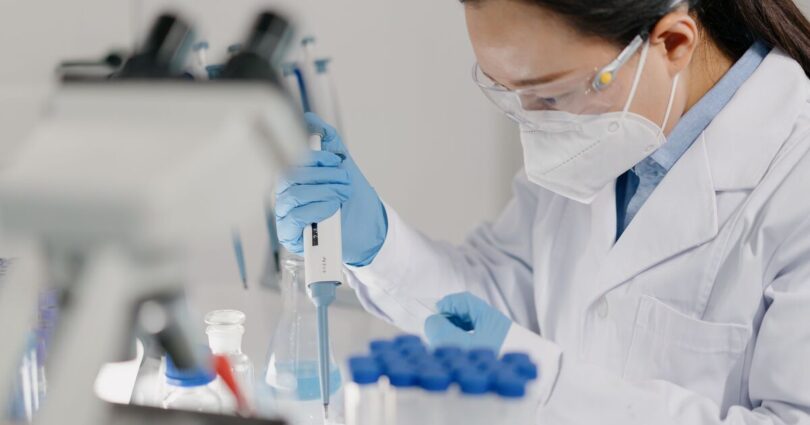A potential new cancer vaccine could be on the horizon as a study has yielded “exciting” results. Scientists have revealed that a new jab could successfully eliminate a type of kidney cancer.
Successful human trials have found that the vaccine could eliminate tumours in patients with stage three or four clear cell renal cell carcinoma. It also trained the body’s immune system to recognise and eliminate any remaining tumour cells.
Following a period of around 34 months since the trial, the nine patients remained cancer-free.
Co-principal investigator Toni Choueiri, the director of the Lank Centre for Genitourinary Cancer at Dana-Farber, called these results “exciting”.
He said: « We’re very excited about these results, which show such a positive response in all nine patients with kidney cancer.” Co-senior author Catherine Wu, added: « We are thrilled to report these results. »
Currently the standard treatment for patients with this advanced disease is surgery to remove the tumour. This can be followed by immunotherapy that reduces the risk of the cancer coming back.
But around two-thirds of patients can still recur and have limited treatment options.
As part of this trial, nine patients were treated with a personalised cancer vaccine after surgery. Five participants were also given an immunotherapy drug called ipilimumab with the vaccine.
To personalise the vaccines, the team extracts molecular features – called neoantigens – from the tumour cells that differ from normal cells. Predictive algorithms are used to determine which of these neoantigens to include in the vaccine based on their likelihood to induce an immune response.
Vaccines were then created and administered to the patient in a series of initial doses followed by two boosters.
Oncologist and study author David Braun explained: « This approach is truly distinct from vaccine attempts in kidney cancer. We pick targets that are unique to the cancer and different from any normal part of the body, so the immune system can be effectively ‘steered’ towards the cancer in a very specific way.
“We learned which specific targets in the cancer are most susceptible to immune attack and demonstrated that this approach can generate long-lasting immune responses, directing the immune system to recognise cancer. We believe this work can form a foundation for the development of neoantigen vaccines in kidney cancer. »
Although some patients experienced local reactions at the vaccine injection site, and some experienced flu-like symptoms, no serious side effects were reported. Clinical trials with larger number of patients are now needed to confirm the vaccine’s effectiveness.
Patrick Ott, director of the Centre for Cancer Vaccines at Dana-Farber, added: « These results support the feasibility of creating a highly immunogenic personalized neoantigen vaccine in a lower mutation burden tumour and are encouraging, though larger scale studies will be required to fully understand the clinical efficacy of this approach. »
The study was published in Nature journal on February 5.
Source link








